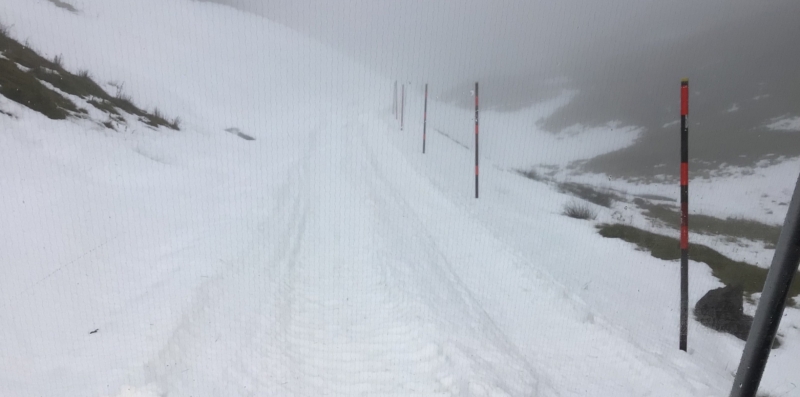Storm Arwen: Engineers against the elements
13 December 2021Six radar, seven radio and three navaid stations were running on generators at the end of last month as the UK felt the full wrath of Storm Arwen.
The storm, which brought 90mph winds, heavy rain and snow to much of the UK on 26-27 November, left a million homes without power, something which also included many of our remote air traffic surveillance and communication sites.
We operate dozens of remote locations across the country, from the iconic ‘golf ball’ radar stations through to far less recognisable but nonetheless vital communication and air traffic surveillance sites. All of it forms part of the technology we use every day to keep the skies safe and people moving smoothly.
Making sure it’s all in good working order is therefore a big part of our ongoing engineering task. We have specialist engineers based around the country who form part of 24/7 teams, ready to respond as and when required. These are some of the very best in the business, but even they found the conditions caused by Arwen extremely challenging.

As part of the UK’s critical national infrastructure, we build a huge amount of resilience and contingency into all the technologies and systems we use, but that can still mean – on occasions like those created by Arwen – getting out in terrible conditions to make physical repairs on the ground.
The power failure at the Great Dun Fell radar and radio station in Cumbria – one of our highest elevation sites in the UK – was a particular challenge. The site lost outside power during the storm but was running on its generator until that suddenly stopped, leaving the site with just its battery back-up.
Getting to the site was extremely difficult. Snow had blocked the main road and the team had to gain access via an off-road alternate route using a tracked vehicle. Once on site, the cause of the generator failure was evident with the electrical supply incomer and the generator fuel pumps covered in snow, which had to be cleared and repairs then made.

And despite those major obstacles, and with excellent support from engineers at our Swanwick and Prestwick centres, the teams on the ground were able to keep the overall UK air traffic operation running with minimal impact. The Great Dun Fell team even went so far as to support the local power company in reaching their own sites in the area.
Winter is always a challenging time and engineers can sometimes be the unsung heroes of air traffic management, but they all absolutely deserve our thanks for repeatedly going above and beyond.
Comments
Please respect our commenting policy and guidelines when posting on this website.

13.12.2021
17:30
Jeff
I’ve been up there on a visit. Of course, there was, and probably still is a snow vehicle that can make it up and down the mountain. It’s a shame the generator stopped working suddenly. My own experience of these standby generators is that they are well maintained, eh still let us down on the very occasion they are needed the most. Well done to all engineers that keep their air traffic control operations working through all these difficult operational situations. Of course, it’s a team effort, and that’s the strength of NATS. The team work.
13.12.2021
18:51
Bob Mcnair
Now that’s a job I would have loved to have been part of!!!
13.12.2021
22:27
James Edwards
The challenges that our engineers face always amaze, particularly during such severe weather events. It’s important that shift patterns and staffing allow for a full roster of staff to be able to respond to such demands, both at centres and airports as well as at off-site locations such as GDF.